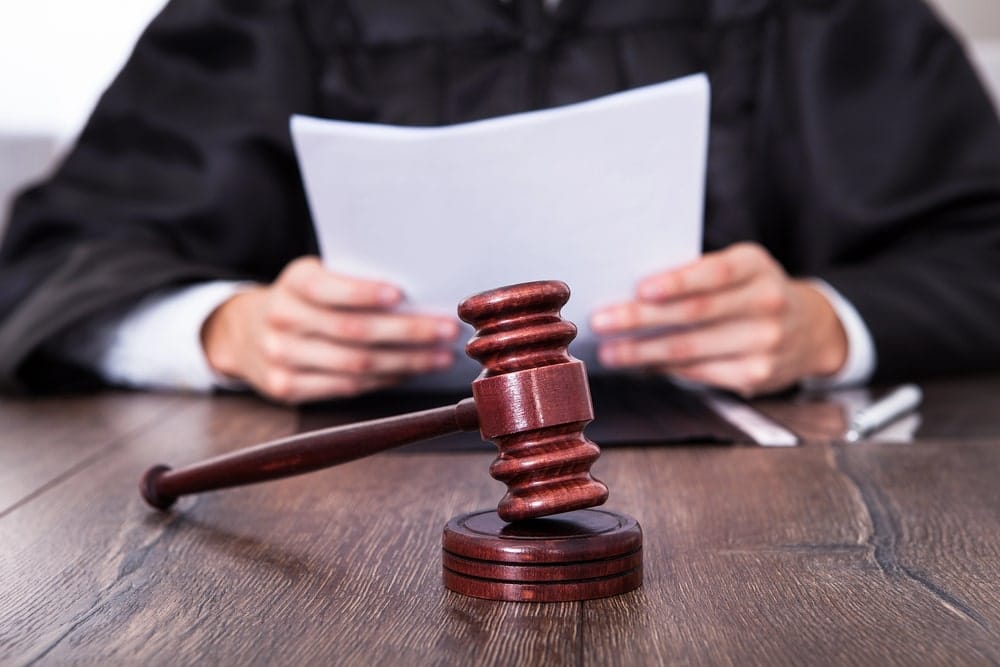A moment of conflict or accusation can change everything in an instant. Whether you are seeking safety after abuse or facing a protective order that limits your freedom, the process can feel overwhelming and confusing. In Florida, protective orders, legally known as injunctions for protection, are powerful legal tools that can immediately restrict contact and impact housing, child custody, and even firearm rights.
Understanding how these orders work, how to file or respond, and how enforcement is handled is essential for protecting your rights and safety.
This guide explains protective orders in Florida, how filing and enforcement work, and why having an experienced Ponte Vedra Beach violent crimes lawyer can make a crucial difference.
What Is a Protective Order in Florida?
A protective order in Florida is a court-issued injunction designed to prevent acts of violence, harassment, or stalking. It serves as a legal shield for individuals who fear harm, placing restrictions on the accused person’s contact or proximity. The goal is to provide immediate safety and peace of mind for victims while the legal process unfolds.
For those accused, a protective order can have serious consequences, including loss of contact with children, restricted movement, and damage to professional reputation. Understanding and responding correctly is critical.
A protective order is a civil remedy designed to stop abuse rather than punish it. Yet, when its terms are violated, the violation becomes a criminal offense that can lead to arrest or jail time. Understanding and following every condition of the order is therefore essential for both safety and compliance.

Types of Protective Orders and When Courts Grant Them
Domestic and Dating Violence Injunctions
These injunctions protect victims who have been harmed or threatened by a family member, spouse, former spouse, or someone in a recent intimate relationship. Courts issue them when credible evidence shows past violence or a genuine fear of imminent harm. Supporting materials such as police reports, witness statements, or medical records often strengthen the petitioner’s case.
Repeat and Sexual Violence Injunctions
Repeat violence injunctions apply when two or more acts of violence or stalking have occurred, with at least one incident happening recently. Sexual violence injunctions cover offenses like sexual battery, lewd acts, or similar crimes and often require a police report or evidence of the offender’s release. Together, these injunctions ensure lasting protection for victims who continue to face serious threats.
Stalking and Cyberstalking Injunctions
These injunctions address ongoing harassment, intimidation, or digital abuse that causes fear or emotional distress. Judges examine texts, emails, or social media communications to confirm repeated contact or threats. Their goal is to stop persistent harassment and restore the victim’s safety and peace of mind.
How to File for a Protective Order in Florida
Filing the Petition
You may file a petition for protection in the circuit court where you live, where the respondent lives, or where the violence occurred. The petition must include sworn facts describing the abuse and its impact in clear detail. Providing accurate information helps the court assess danger and take prompt action to ensure your safety.
Where to file:
- The circuit court in your county of residence
- The county where the respondent lives
- The county where the violence occurred
Required Forms
Florida requires petitioners to use the official “12.980 series” forms from the Supreme Court. Clerks can provide these forms and explain how to complete them.
You can file:
- In person at the courthouse, or
- Electronically through the court’s online system
This ensures flexibility and accessibility for all petitioners.
No Filing Fee
Florida law removes all filing fees for injunction petitions. This ensures victims are never prevented from seeking safety due to financial limits. Everyone has equal access to legal protection regardless of income.
Confidentiality Requests
Petitioners can request to keep personal information, such as addresses or contact details confidential.
Confidentiality is especially important for:
- Victims of stalking or harassment
- Individuals who have recently relocated
Protecting privacy helps maintain safety throughout the legal process.

Temporary Orders and Service of Process in Florida
Purpose and Issuance
Temporary ex parte orders provide fast protection while the case is still under review. Judges issue these orders when notifying the respondent could increase the petitioner’s risk. They act as a short-term safety buffer until the court can evaluate all the evidence at a formal hearing.
Time Limits and Safeguards
Temporary orders remain in effect for up to 15 days, with a hearing scheduled during that time. If the hearing is delayed, the court automatically extends the order to avoid any lapse in protection. This process ensures both urgency for victims and fairness for all parties involved.
Service and Verification
Clerks send approved orders to law enforcement within 24 hours for immediate service. Once entered into Florida’s statewide database, officers can confirm and enforce them anywhere in the state. Proof of service must be filed before the case proceeds to a final hearing.
What Happens After a Protective Order Is Granted
Court Hearing
After a protective order is granted, both parties appear before the judge for a formal hearing. Each side may present:
- Testimony
- Evidence
- Witnesses
The court reviews credibility, safety needs, and any ongoing risk of violence or harassment before deciding how to proceed.
Possible Outcomes
Based on the evidence, the judge may:
- Grant, extend, modify, or dismiss the injunction
- Impose no-contact rules or stay-away zones
- Require the surrender of firearms
- Address temporary child custody or financial support
Each decision aims to ensure safety and fairness for both parties.
Long-Term Effect
A final injunction remains in place until the court modifies or dissolves it. Either party can request a change if safety concerns or personal circumstances evolve. Florida courts may also include protection for:
- Pets
- Property
These measures help prevent further harm and provide lasting security.

Enforcement and Penalties
Law Enforcement and Arrests
Law enforcement can arrest a respondent without a warrant when probable cause shows a violation. Because any breach of a protective order counts as a criminal offense, officers act quickly to intervene. This immediate response reinforces the order’s authority and helps prevent further harm to the victim.
Criminal and Civil Penalties
Violating a protective order is usually charged as a first-degree misdemeanor, carrying possible jail time and fines. Repeated or serious violations may rise to felony charges, especially when weapons or threats are involved. Judges can also impose civil or criminal contempt penalties for continued disobedience.
Recognition of Out-of-State Orders
Florida honors valid protective orders from other states under the federal Full Faith and Credit clause. This ensures victims remain protected even when relocating or if the respondent travels across state lines. Consistent enforcement strengthens long-term safety and accountability.
Conclusion
Protective orders in Florida provide powerful and immediate legal remedies, but they can also create serious consequences for the accused. Whether you are seeking safety from abuse or responding to a protective order that was filed against you, understanding the process and acting quickly is critical.
Our team at Malcolm Anthony, P.A. has extensive experience with domestic violence and injunction cases throughout Florida. We help clients file for protection when necessary and defend those unfairly accused of violence, stalking, or harassment. From filing petitions to enforcement hearings, we safeguard your rights at every stage.
If you have been served with a protective order or believe one may be filed against you, do not wait. Contact us at (904) 285-4529 to speak with a Ponte Vedra Beach criminal defense lawyer today. Protect your future, your rights, and your peace of mind with skilled legal representation.

